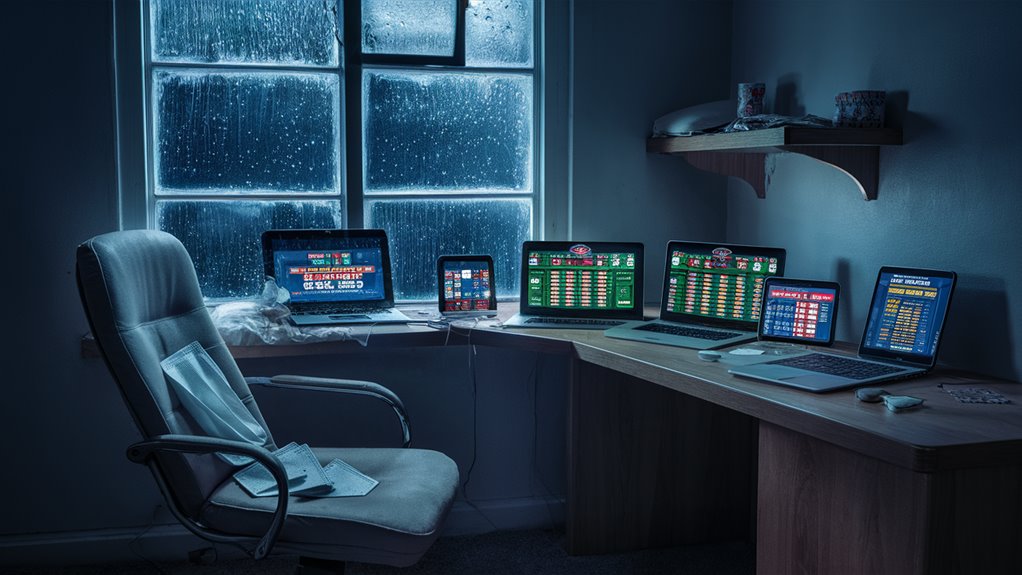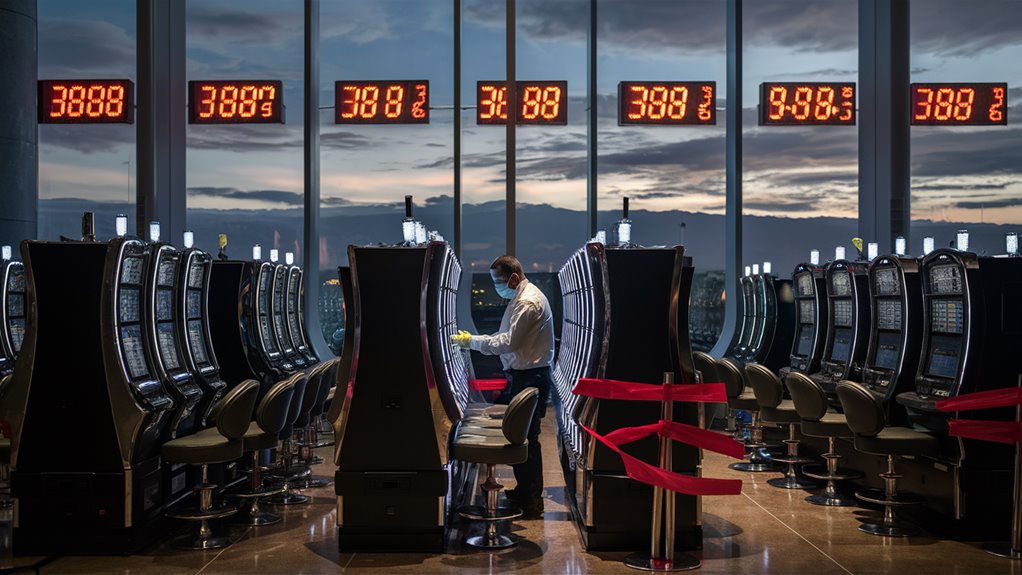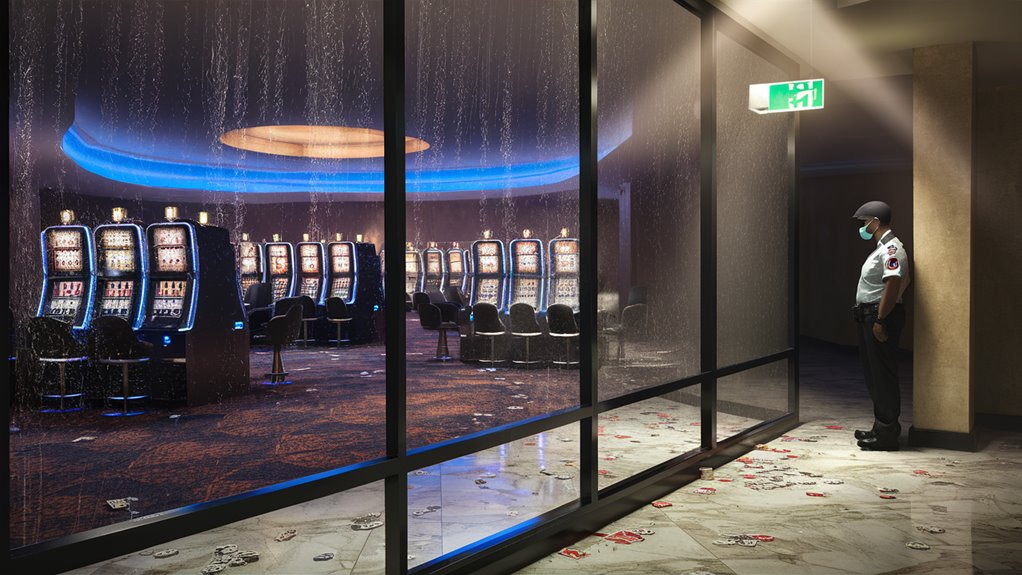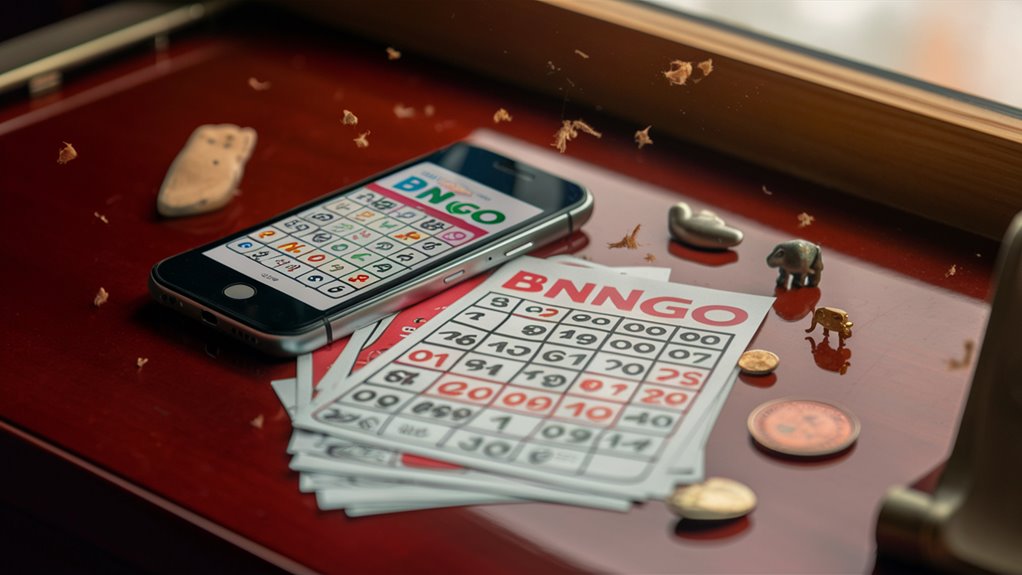Let’s talk about how recent global events have completely changed the way people gamble these days. You know how everything seemed to change overnight? Well, the gambling world was no exception. Between lockdowns keeping people at home, economic uncertainty making everyone nervous, and technology advancing at lightning speed, we’ve seen changes that normally would’ve taken ages to happen.
Think about it. Just a few years ago, most people wouldn’t have dreamed of betting with cryptocurrency or stepping into a virtual casino. But here we are! The gambling industry had to adapt quickly, and boy, did it ever. It’s pretty wild when you think about it, traditional casinos and betting shops had to close their doors, forcing everyone to rethink how they operate.
The really interesting part? The way people responded to all these changes. Some folks who’d never considered online gambling before suddenly found themselves curious about digital platforms. Others discovered they actually preferred the convenience of betting from home. You might be surprised to learn that these new habits didn’t just disappear when things started getting back to normal.
What we’re seeing now is a totally different gambling landscape. The industry has gone through this massive digital transformation, revealing some pretty unexpected patterns in how people choose to place their bets. And get this: these changes aren’t just temporary fixes, they’re reshaping how the whole industry operates going forward. From regulators scrambling to keep up with new technology to operators finding innovative ways to reach their customers, it’s like watching a whole new chapter unfold in the gambling world.
Digital Transformation During Global Lockdowns

Let’s talk about how the global lockdowns of 2020 completely changed the way people gamble. You know how it goes, right?
When traditional casinos had to close their doors, players naturally gravitated toward online platforms and mobile betting apps. The gambling industry had to adapt incredibly quickly, and boy did they ever.
Think about it. Even those die-hard casino enthusiasts who always insisted on the physical experience started checking out virtual poker rooms and online slots.
And honestly, who could blame them? These platforms got really good at recreating that authentic casino feel, complete with live dealers you can chat with and real-time games alongside other players. It’s pretty remarkable when you think about it.
The whole betting landscape has undergone quite a transformation. Remember when you’d to physically be at a venue to place a bet?
Well, now you can do it right from your phone, with all sorts of new options like micro-betting and live wagering that just weren’t possible before.
Plus, the technology has gotten really smart about understanding player preferences. Betting sites can now track patterns, offer personalized bonuses, and help keep gambling responsible and fun.
What we’re seeing isn’t just a temporary fix for unusual times. This shift toward digital gambling looks like it’s here to stay, with online platforms becoming the go-to choice for many players.
Sure, traditional casinos still have their charm, but the convenience and innovation of digital gambling have definitely changed the game for good.
Economic Downturns and Betting Behavior

Let’s talk about how economic downturns affect our betting habits. You might think people completely stop gambling when money gets tight, but the reality is way more interesting than that.
Here’s something surprising: while overall gambling spending tends to drop during tough economic times, certain types of betting actually become more popular.
Think about it. When you’re worried about money, the temptation of a quick financial fix through gambling can be pretty strong, even though you’ve got less cash to spare.
Take lottery tickets, for instance. Sales often spike during recessions. Makes sense when you think about it, right?
A few bucks for a chance at life-changing money feels like a bargain when times are tough. Online gambling sees a similar boost, probably because you can start betting with smaller amounts than you’d need at a regular casino, and you can do it right from your couch.
Gambling companies know this too. That’s why you’ll probably notice more ads and promotions during economic downturns. They’re all competing for your entertainment dollars, which they know are harder to come by these days.
What’s really interesting is how betting patterns change. People tend to gravitate toward lower-stakes games and those where they feel they’ve more control over the outcome, like poker or sports betting.
But here’s the concerning part: we also see more problematic gambling during these times. When financial pressure builds up, some folks make desperate attempts to win back their losses, which can lead to a pretty dangerous cycle.
Understanding these patterns isn’t just interesting, it’s crucial for keeping ourselves and our communities healthy during tough economic times. After all, recognizing these trends is the first step in making smarter choices about how we handle our money when things get tight.
Cryptocurrency’s Role in Online Gaming

Let’s talk about how cryptocurrency has changed the game for online gaming, quite literally. You know how traditional banking can be a hassle when you’re trying to play online? Well, crypto has completely transformed that experience.
Think faster payments, more privacy, and way less hassle with fees. Bitcoin, Ethereum, and other digital currencies are now powering tons of online casinos and betting sites, giving players a break from the usual banking headaches.
Here’s what makes it really interesting: blockchain technology actually makes everything super transparent. Imagine being able to verify that the games are truly random and fair, or checking your transactions right there on the public ledger. Pretty cool, right?
Smart contracts handle all the payouts automatically, so you won’t have to worry about waiting forever for your winnings or wondering if someone’s messing with the system. Plus, if you’re into crypto gaming, you’ll often find some sweet bonus deals that aren’t available to regular players.
But let’s keep it real for a minute. Cryptocurrency values can be pretty wild, going up and down like a roller coaster, which might affect your gaming budget.
And just because you’re using crypto doesn’t mean you can ignore the rules. Your local gambling laws still apply, no matter how you choose to pay. Think of it like using digital cash instead of regular money, the same rules of the game still apply.
Social Distancing and Virtual Casinos

Well, let’s talk about how casino gaming completely changed when social distancing became part of our lives.
Millions of people worldwide discovered they could still enjoy their favorite casino games, just in a different way. Virtual casinos stepped up to fill the gap, and honestly, they’ve done an impressive job at creating experiences that feel surprisingly close to the real thing.
Think about it. You can now sit on your couch in your pajamas while joining a live poker tournament with players from around the world.
These online platforms have gotten really sophisticated, with live dealers looking right at you through HD video streams and real-time chat features that make you feel like you’re right there at the table.
What’s really cool is how these virtual casinos have figured out the technical side of things. The software ensures everything’s fair and random, plus you get detailed stats about your gaming sessions, which is something you rarely see in traditional casinos.
And here’s a neat advantage: you can actually practice with free credits before putting any real money on the line.
You know what’s impossible to do at a regular casino? Play multiple games at once. But online? No problem. You can have a poker game going while trying your luck at the slots.
These platforms have also gotten pretty clever with social features. They’ve added multiplayer rooms and community chats so you can still get that buzzing casino floor atmosphere right from home.
The best part? This isn’t just some temporary fix anymore. These innovations have become a permanent part of how we gamble, making casino games more accessible than ever before.
It’s pretty amazing how technology has transformed something we used to think could only happen in person, right?
Remote Work’s Effect on Gambling

Working from home has dramatically changed how we interact with gambling, and honestly, it’s not quite what anyone expected.
Let’s face it: when your work and personal life blend together in the same space, it becomes surprisingly easy to drift toward online gambling sites. Think about it. Your laptop’s right there, no one’s watching, and you can easily switch between work tabs and betting platforms during lunch breaks or right after your last Zoom call.
You know what’s interesting? Remote workers are now bombarded with gambling ads like never before.
While you’re sitting through virtual meetings or researching work projects, these ads keep popping up everywhere. And let’s be real, when you’re feeling isolated or missing those water cooler chats with colleagues, online gambling can seem like an tempting way to fill that social void. Plus, with all the money saved from not commuting or buying lunch out, there’s often extra cash burning a hole in your digital wallet.
But here’s the thing about this new accessibility to gambling, it comes with some serious catches. Without the regular structure of office life, keeping clear boundaries between work time and gambling can get pretty fuzzy.
And nowadays, with digital payments and cryptocurrency making everything so seamless, placing bets while working from home is almost too convenient. It’s like having a casino in your pocket, which sounds fun until you realize how quickly things can get out of hand.
Remember those clear lines between work and personal time? Well, they’re not so clear anymore, and that’s something we all need to think about carefully.
Cross-Border Regulatory Changes

Let’s talk about how the world of online gambling is changing across borders. You know how the internet made gambling accessible from pretty much anywhere? Well, governments are catching up, and they’re getting serious about regulating it.
These days, countries aren’t just working alone, they’re teaming up. Take the UK, Sweden, and Australia, for instance. They’ve rolled out some pretty sophisticated systems to keep tabs on gambling that crosses their borders. It’s like having a digital traffic cop watching over the online gambling highways.
If you’re someone who enjoys online gambling, you’ve probably noticed some changes already. Maybe that international site you used to visit isn’t available anymore, or you’re being asked for more identity verification than before.
That’s because operators now have to jump through multiple legal hoops in different countries. Think of it like this: if you’re running an online casino, you can’t just set up shop anywhere and accept players from all over.
You need to follow rules about player safety, responsible gambling, and taxes in each country where your players live. It’s getting pretty complex out there.
Here’s what’s interesting, though. We’re starting to see some common ground emerging. The European Union has already created a blueprint for how countries can work together, and countries in Asia and the Pacific are following suit.
And with cryptocurrency throwing a new twist into the mix, regulators are scrambling to figure out how to handle digital money in gambling too.
So what does all this mean for the future? Well, expect more unified standards as countries share what works and what doesn’t. The wild west days of online gambling are gradually giving way to a more regulated, structured environment.
It might feel more restrictive, but it’s all about making sure everyone plays by the rules.
Mobile Gaming Market Expansion

Let’s talk about how mobile gaming has completely changed the landscape of casual entertainment. You know how everyone seems glued to their phones these days? Well, there’s a good reason for that.
Mobile gaming has exploded in popularity, and it’s fascinating to see how it’s reshaping our daily entertainment habits.
Think about it. Almost everyone has a smartphone nowadays, and game developers have caught on to this trend in a big way. They’re pouring resources into creating amazing mobile experiences, with stellar graphics and intuitive touch controls that make gaming on the go a breeze.
From casual puzzle games to complex multiplayer adventures, there’s something for every type of player.
The tech behind mobile gaming just keeps getting better 에볼루션카지노 too. With 5G rolling out across the globe, games load faster than ever, and those annoying connection drops are becoming a thing of the past.
And paying for games or making in-app purchases? Super simple now, thanks to digital wallets like Apple Pay and Google Pay. Just tap, confirm, and you’re good to go.
Game developers are really stepping up their game too (pun intended). They’re coming up with some pretty creative features specifically for mobile players.
Think exclusive mobile rewards, touch-friendly controls that actually make sense, and even location-based events that get you exploring your neighborhood while playing.
Looking ahead, we’ll probably see even cooler stuff, like games that blend with the real world through augmented reality and new ways to connect with other players.
The future of mobile gaming? It’s already in your pocket.
Common Questions
How Do Seasonal Sporting Events Affect Gambling Addiction Rates Globally?
Let’s dive into how gambling rates spike during major sporting events. You know those big tournaments like the World Cup, March Madness, and the Super Bowl? They tend to create the perfect storm for people struggling with betting habits.
Think about it: when these massive sporting events roll around, we’re bombarded with betting ads, office pools, and constant talk about odds and predictions. It’s pretty much impossible to escape the gambling buzz during these seasons.
For folks who might be vulnerable to gambling problems, these high-profile sporting events can be particularly challenging. The excitement of the games, combined with easy access to online betting platforms and the social pressure to join in, creates what addiction specialists call “high-risk periods.”
The numbers really tell the story. Gambling helplines typically report significant spikes in calls during and immediately after major sporting events. It’s not just about the big game anymore; with live betting options, people can place wagers on practically every play or point scored.
Want to know what makes this even trickier? The rise of mobile betting apps means anyone can place bets right from their couch while watching the game. Back in the day, you’d at least need to make an effort to visit a betting shop or casino. Now? It’s literally just a few taps away on your phone.
What Impact Do Cultural Attitudes Have on Gambling Trends Across Different Regions?
Cultural attitudes toward gambling vary dramatically across the globe, and it’s fascinating to see how these differences play out. Take places like Macau and Las Vegas, where gambling isn’t just accepted, it’s celebrated as a cornerstone of local culture and tourism. In these regions, you’ll find bustling casinos packed with both locals and tourists, treating gambling as a legitimate form of entertainment.
But here’s where it gets interesting: shift your focus to Muslim-majority countries, and you’ll see a completely different picture. Religious and cultural values in these regions often view gambling as morally wrong, leading to strict prohibitions and social stigma. This isn’t just about laws on paper, it’s about deeply held beliefs that shape how entire communities view betting and games of chance.
The impact of these cultural attitudes goes way beyond personal choices. Think about it: in gambling-friendly regions, you’ll notice more relaxed regulations, higher participation rates, and even gambling-themed entertainment venues. Meanwhile, in conservative societies, you might find underground gambling operations because the activity is pushed to the margins.
What makes this really compelling is how these cultural perspectives influence everything from local legislation to tourism patterns. Some societies build their economies around gambling tourism, while others actively discourage it through both legal measures and social pressure. It’s a perfect example of how cultural values can shape not just individual behavior, but entire economic sectors and social norms.
How Do Generational Differences Influence Gambling Platform Preferences?
Let’s dive into how different generations approach their gambling preferences. You know how technology shapes our habits, right? Well, it’s fascinating to see this play out in the gambling world.
Younger folks, particularly Gen Z and Millennials, are naturally drawn to the convenience of mobile betting apps and the excitement of esports wagering. Think about it: they’ve grown up with smartphones in their hands, so it makes perfect sense that they’d prefer placing bets with a few quick taps.
Meanwhile, Baby Boomers and older generations tend to gravitate toward the classic casino experience. There’s something about the atmosphere, the personal interaction, and the familiar ring of slot machines that keeps them coming back to traditional venues.
But here’s where it gets interesting: digital natives (those who grew up in the internet age) aren’t just choosing mobile platforms because they’re comfortable with technology. They’re attracted to the instant gratification, real-time odds updates, and social features that app-based betting provides.
You’ll find that while traditional casinos aren’t going anywhere, the landscape is definitely shifting. Mobile platforms are becoming increasingly sophisticated, offering everything from live dealer games to virtual reality experiences. And guess what? Even some older players are starting to explore these digital options, though they often treat them as a complement to, rather than a replacement for, their casino visits.
What Role Does Responsible Gambling Technology Play in Preventing Underage Betting?
Let’s dive into how responsible gambling technology helps protect young people from betting. You know how tech seems to have a solution for everything these days? Well, when it comes to keeping underage users away from betting platforms, it’s actually doing a pretty impressive job.
Think of it as a digital bouncer that’s way more thorough than any human could be. These platforms use sophisticated age verification systems that work kind of like a virtual ID check. Just like a store clerk checking your driver’s license, but much more comprehensive. The system runs through multiple digital checkpoints to verify someone’s real age.
But that’s not all. AI monitoring acts as a watchful guardian, constantly scanning for any suspicious patterns or attempts to bypass these safety measures. It’s pretty clever stuff, actually. The system can spot potential red flags in real time and shut down access before any harm is done.
What really makes this technology effective is how it combines different safety features. Beyond just checking ages, these platforms automatically set time restrictions and spending limits. Picture having a smart friend who taps you on the shoulder when you’ve been playing too long or spending more than you should.
The best part? These safeguards work together seamlessly in the background, creating multiple layers of protection. It’s like having several locks on your front door, each one adding an extra layer of security to keep the house safe.
How Do Changes in Disposable Income Affect Different Types of Gambling Activities?
Let’s talk about how changes in your spending money affect gambling habits. You know how it goes, when money gets tight, people tend to make different choices about their gambling activities. Here’s something interesting: most folks will quickly cut back on those big casino bets or high-stakes poker games when their wallet feels lighter.
But here’s the catch. Even when times are tough, many people still hang onto their smaller gambling activities, like buying lottery tickets or scratching off those $2 cards at the convenience store. Why? Well, these smaller bets still give that little thrill of possibility without breaking the bank.
Think about it like grocery shopping on a budget. You might skip the fancy steaks but still treat yourself to a candy bar at checkout. Similarly, someone feeling the pinch might pass on that $100 poker night but keep their weekly lottery ticket habit going strong.










